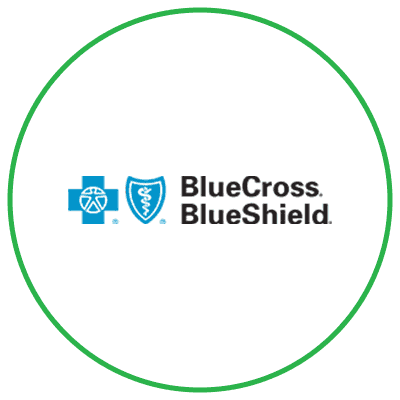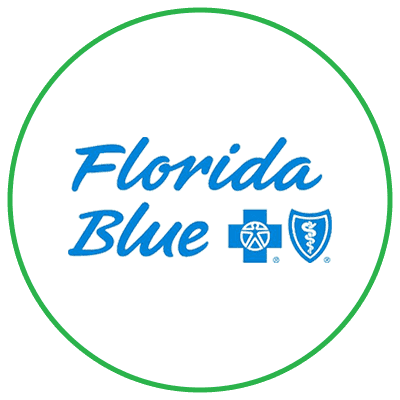
Macon Prescription Drug Addiction Treatment
Holistic Treatments for Prescription Drug Abuse in Georgia
Prescription drug addiction continues to be a growing problem in the United States. Many people are unaware that it is extremely possible to become addicted to medications prescribed in good faith by their doctors, which can have devastating consequences. Other individuals, including minors and young adults, use prescription drugs recreationally. Intentional or inadvertent misuse of prescription drugs can lead to physical dependence, tolerance, and even overdose if not treated properly.
If you or someone you love has become dependent on prescription drugs, the Georgia Recovery Campus can provide the compassionate, no-judgment support needed to help patients safely detox and regain control of their lives. Our Macon prescription drug addiction treatment programs are tailored to each patient’s specific needs and take a dual diagnosis approach when mental health disorders play a role in substance abuse. With a beautiful campus, numerous amenities, and state-of-the-art facilities, you can trust you or your loved one will receive top care designed to comprehensively treat the body, mind, and spirit.
Call (478) 216-1110 or contact us online today to schedule an appointment and learn more about marijuana addiction treatment in Macon, GA.

We Accept Most Major insurances
What is Prescription Medication?
Prescription medication refers to pharmaceutical drugs that can only be obtained with a written prescription from a licensed healthcare professional, like a doctor or a nurse practitioner. These medications are regulated because they often require specific dosages, monitoring, or supervision due to their potency, potential side effects, or the need for proper diagnosis before use.
Here are some categories of addictive prescription drugs:
- Opioids: These are pain-relieving medications that can be highly addictive. They work by binding to opioid receptors in the brain, reducing the perception of pain. Common opioids include oxycodone (OxyContin), hydrocodone (Vicodin), codeine, and morphine.
- Benzodiazepines: These medications are prescribed to treat anxiety, panic disorders, and sleep issues. They act as central nervous system depressants, producing a calming effect. Examples include alprazolam (Xanax), diazepam (Valium), and lorazepam (Ativan). Prolonged use can lead to dependence.
- Stimulants: Typically used to treat conditions like ADHD (Attention Deficit Hyperactivity Disorder) and narcolepsy, stimulants increase alertness, attention, and energy. However, they can also be misused for their euphoric effects. Examples include methylphenidate (Ritalin) and amphetamine/dextroamphetamine (Adderall).
- Barbiturates: These are central nervous system depressants that were once commonly prescribed for anxiety or sleep disorders. However, they are now less commonly used due to their high potential for abuse and overdose. Phenobarbital is an example.
- Sleep Medications: Some prescription sleep aids, especially those in the class of non-benzodiazepine hypnotics (such as zolpidem/Ambien), can be habit-forming if used for an extended period.
How Can I Safely Use Prescription Pills?
It can be disconcerting to hear that the pills prescribed by your doctor to treat a health condition may be addictive. Fortunately, there are several steps you can take to minimize the likelihood of a dependence forming or other complications. First and foremost, prescription medications should always be taken as directed by a healthcare provider or pharmacist. You should also take the time to understand the potential risks associated with taking prescription drugs and how to safely use them. To avoid the risk of developing an addiction or suffering serious health consequences, you should:
- Always carefully follow prescription instructions to the letter
- Always confirm how a prescription drug interacts with alcohol or other drugs you may be taking
- Always verify whether taking a prescription drug will impair your judgment or your ability to drive
- Always be transparent with your doctor about any history of substance abuse
- Never alter the dosage of a prescription drug without first consulting your doctor (this includes quitting “cold turkey”)
- Never allow anyone else to take drugs prescribed to you
- Never take a prescription drug that has not been prescribed to you
Why Are Some Prescription Drugs So Addictive, and How Can They Be Dangerous?
What Are the Signs of Prescription Drug Addiction?
The increasing role that the internet has played in healthcare, from the increasing ubiquity of online pharmacies and telehealth services, has made it drastically easier to obtain potentially addictive prescription drugs. The result is that people struggling with substance abuse have more ways than ever to feed their addictions, often without any in-person interactions in which the signs of an addiction could be observed. Consequently, friends and family members should be mindful of loved ones who they know to be taking prescription drugs for any reason. Someone may be dealing with a prescription drug problem if they:
- Develop a tolerance. This will result in the individual seeking doses higher than what was originally prescribed through legitimate or illegitimate means.
- Appear to have no control over when or how much of the drug they take. If you notice a loved one haphazardly taking a prescription drug at inconsistent hours, they may be abusing the medication.
- Become increasingly irritable. Prescription drug abuse can contribute to mood swings and general hostility, leading to increased isolation from friends and family members.
- Express difficulty in getting off the medication. Many people struggling with prescription drug dependencies do not intentionally become addicted to these powerful medications. If a loved one explains they are having trouble stopping and have thus asked for additional dosages, it may be time to discuss other treatment options.
- Suffer withdrawal symptoms. Prescription drugs can create physical dependencies, meaning the body will unavoidably experience withdrawal symptoms when access to the medication is cut off. Withdrawal symptoms may include nausea, vomiting, sweating, muscle cramps, restlessness, insomnia, and depression.
Addiction can take hold fast, and the sooner you are able to intervene, the better.
If you think you may have a substance abuse problem, do not hesitate to call (478) 216-1110 or contact us online to learn more about how our Macon prescription drug addiction treatment program can help.


Why Choose Georgia Recovery Campus?
-
TransparencyWe understand how difficult recovery is. We work one on one with you every step of the way to ensure we are helping you make the necessary changes to obtain the life you deserve.
-
Person-FocusedWhen you come to our facility, you are not only getting a beautiful campus and quality services, but you are also getting a team who truly cares about your recovery.
-
Top-Class Recovery TeamOur dedicated, experienced, and compassionate team of experts is here for you every step of the way. We have the tools, resources, and knowledge to help you on your journey.
-
Customized TreatmentAt Georgia Recovery Campus we treat the entire mind, body, and spirit. When you come to us, we work one on one with you to select the track that would be most beneficial to you and your goals.




